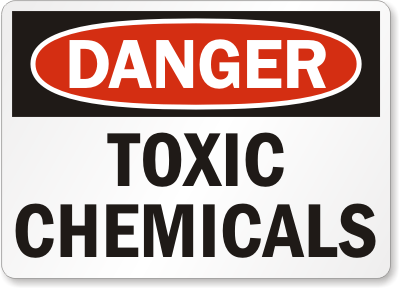
5 Toxic Materials
We all work very hard to make our homes as safe and comfortable as possible. Still, so it happens that we surround ourselves with things we didn’t know were bad for us until it’s too late. A lot of materials we use in our homes and garden are actually bad for us, but it’s not something we tend to notice. We are surrounded by chemicals, and if we start paying more attention, we will do ourselves a favor by avoiding toxic materials and chemicals. Here’s what you should start paying attention to in your home:
Plastic containers
It’s hard to imagine life without convenient plastic containers. The harder the case, the better, and for decades, BPA chemical has been used to harden plastic. Sadly, it also means that any food you store in these containers has also been exposed to BPA and that you’ll likely eat it. It can also be found in water bottles as well as baby bottles, which means that babies are exposed to it too. If you want to minimize your exposure to this chemical, avoid microwaving food in plastic containers and use glass and ceramic dishes instead. Try to store food in glass and metal containers, too, and find BPA-free reusable water bottles.
Asbestos
Asbestos used to be known as “the magic mineral” because it’s naturally occurring and its fibers are not only very soft and flexible but also resistant to heat and chemical corrosion. All of these traits made it very popular in construction, but sadly, it’s highly toxic and dangerous. It’s easy to inhale and swallow the fibers since they’re very small and can’t be seen, tasted or smelled, but once they’re inside your body, it’s virtually impossible to get rid of them.
If you have any doubt that you might have it in your home, you can easily do asbestos testing in Sydney and make sure you and your family are safe. In case there is any, remember that handling asbestos is best left to professionals.
Vinyl shower curtains
Shower curtains are a must-have in every bathroom, but did you know that the smell of new shower curtains can actually be bad for you? PVC vinyl curtains are easy to come by and relatively cheap, but they also contain dozens of different toxic chemicals. Some of the chemicals that can be found in these curtains include phthalates and volatile organic compounds (also known as VOCs). Even though phthalates are used to soften the material, certain kinds are linked to diseases such as cancer and asthma. Instead of PVC shower curtains, opt for the ones made of polyester or nylon.
Formaldehyde
Formaldehyde is actually used in a number of manufacturing processes and it is quite common in a household, but it’s a known toxin. It can be found in a number of places: pressed-wood products like paneling and plywood, wallpaper, paints, as well as foam insulation. Not only on our walls, but formaldehyde is also present in cosmetics and certain synthetic fabrics too. When exposed to it even for a little while, you can experience dizziness, nausea, and notice irritation in your nose and throat. When buying furniture, pick the one made of 100% hardwood. Even though this usually means that you’ll spend more money, you’ll know that you and your family are safe.
Antibacterial soap
A number of antibacterial soaps use a chemical known as triclosan can have a negative impact on your thyroid and affect hormone balance in your system. What is more, when you use antibacterial chemicals, you’re actually making the bacteria resistant to antibacterial treatment. Next time you go out shopping for soaps, toothpaste, and body washes, pick the simplest ones and let your immune system do the rest.
As time goes by, it looks like the list of chemicals one should avoid is getting longer and longer; still, it doesn’t mean that you should become paranoid. There are safe and effective alternatives to these chemicals you could use every day, and if you’re careful, even being exposed to some doesn’t have to be a disaster. Find alternatives to the chemicals you’re not comfortable using and improve your health as well as the safety of your home.
Article written for WhosGreenOnline.com by Will Sanford, e: will.h.sandford@gmail.com
 WhosGreenOnline.com Your Online Magazine and Directory for Green Business, Product, Service and News!
WhosGreenOnline.com Your Online Magazine and Directory for Green Business, Product, Service and News!

